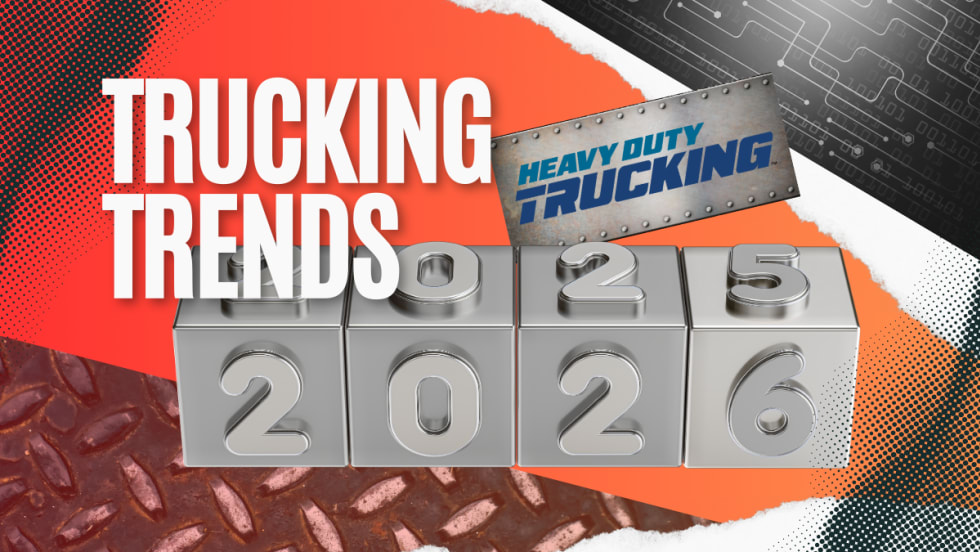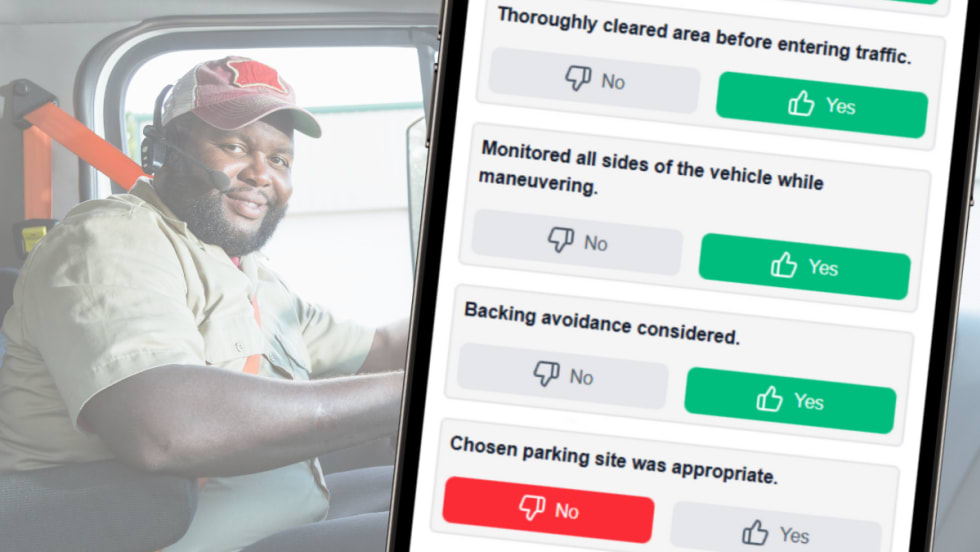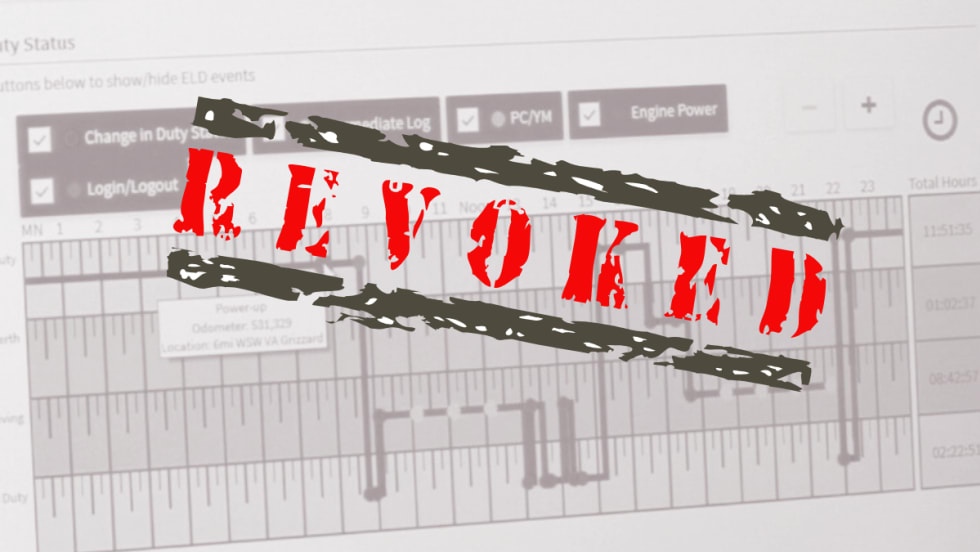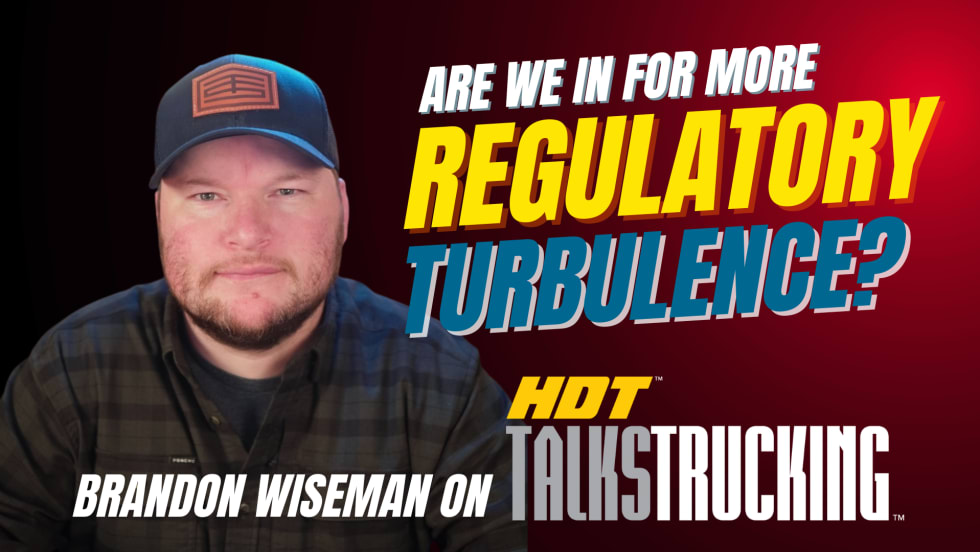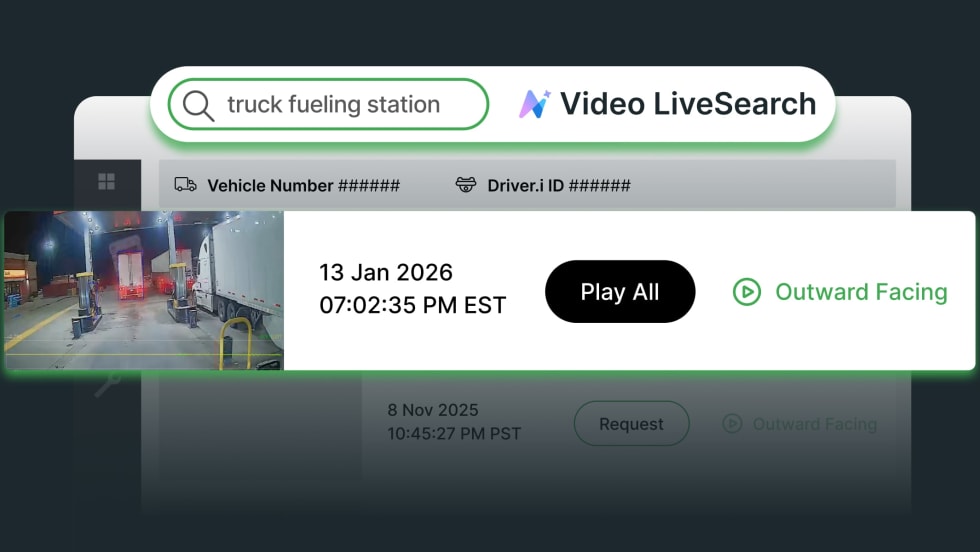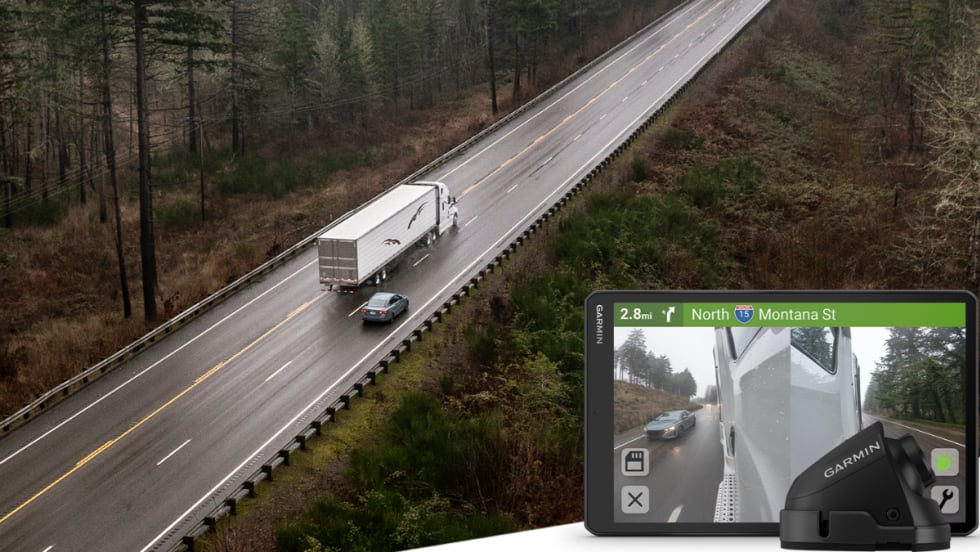What will a Biden administration mean for the trucking industry? We talk to trucking industry groups that are active in Washington, D.C., for their insight.
What will President-Elect Joe Biden's campaign promises mean for trucking? Prognostications on how they will play out in the real world are murky until we find out whether the Republican Party will keep control of the U.S. Senate.
It’s easier to deliver on political promises when a Presidential election results in one party gaining control of the White House, the Senate, and the House. That was the case when Donald Trump won the presidency in 2016. But President Trump quickly moved to wielding disruption as a political cudgel. That cost him the House, which swung back to Democratic control in 2018, but in the Senate, the GOP retained a solid majority throughout his term.
Four years later, Joe Biden won back the White House for the Democrats, with the same number of electoral votes — 306 — as Trump had scored in 2016, and with the most popular votes ever, approaching 80 million votes as of this writing.
On the other hand, President-elect Biden’s coattails were much weaker than Trump’s. The Democrats lost some seats in the House, and as of late November, can only wrest the Senate from the GOP if both Democratic candidates win their Georgia runoff elections on Jan. 5.
In painting the federal legislative and regulatory landscape for trucking once Biden takes office, right now it’s about the broad strokes of executive regulation. The mechanics of legislative action on regulations and on a highway or infrastructure bill will be merely a sketchy outline until those Senate races in Georgia are decided.
Regardless of what happens in Georgia, Joe Biden will have a popular-vote mandate behind the policies he pursues. He also has the know-how to horse-trade and corral votes in Congress, having served in various top Senate leadership posts in his 36 years there. And through two terms as vice president, he was charged with reaching compromises with another ace of the political game, current Senate Majority Leader Mitch McConnel (R-KY).
The Trucking Approach
Even after the four tumultuous years of the Trump administration, at least one thing remains the same in Washington: The trucking industry’s key lobbying groups will typically take a bipartisan approach to working with the officeholders who are key to making and enacting policies that affect truck operations.
Right after the race was called for Biden on Nov. 7, American Trucking Associations President and CEO Chris Spear said in a statement, “We congratulate President-Elect Biden and Vice President-Elect Harris on their hard-earned victory, and we look forward to working with their administration to strengthen the economy and rebuild our national infrastructure.”
Spear went on to note that trucking “speaks to all of America, not one specific political party. As witnessed during the pandemic, the resilience of the American trucker is one of this country’s greatest assets.
“While some exist in Washington to perpetuate problems, we come to the table prepared with solutions,” he said. “We value sound data and honest dialogue. Above all, we commit to working with anyone willing to work with us.
“As the Biden administration rolls up its sleeves and begins the heavy lift of rebuilding America’s ailing infrastructure, it will find a constructive partner in ATA,” Spear added. “We stand ready, willing, and able to get the job done.”
In a similar vein, David Heller, vice president of regulatory affairs for the Truckload Carriers Association, told HDT that the association “maintains strong relationships on both sides of the aisle on Capitol Hill. While the Georgia runoff could affect the control in the Senate, the environment is one in which we will continue to be part of the discussion that takes place regarding infrastructure and focus on the needs of the truckload industry.”
“Generally, Democratic administrations tend to support more pro-safety trucking initiatives,” Lane Kidd, managing director of the Alliance for Driver Safety and Security, a group of motor carrier and logistics firms that lobbies for various safety reforms, told HDT. “For example, the Obama administration supported the electronic logging device mandate, creating the drug and alcohol clearinghouse and pushing major changes in hours-of-service rules.
“But the ELD and drug clearinghouse required congressional approval, and former Sen. Mark Pryor, a Democrat, and on the Senate Commerce Committee, along with Congressman Rick Crawford, a Republican, and a high ranking member of the House Transportation and Infrastructure Committee, led those efforts in each chamber,” he pointed out.
Infrastructure Tops the List
Several of the lobbying experts who spoke to HDT emphasized that the biggest item on trucking’s 2021 wish list is an infrastructure bill.
“Moving a massive infrastructure bill through Congress is being viewed in many circles as one of the first tasks to be undertaken by the Biden administration,” says TCA’s Heller. “Quite obviously, this issue is one that will not cure itself and has been spoken about often since the 2016 election.” The FAST Act [highway] reauthorization bill, recently granted a one-year extension, is thought to be part of Biden’s plans for his first 100 days in office, meaning it could theoretically be passed by the Fourth of July.
“That being said, the hard conversation has always been and will always be about the ‘pay-fors,’” Heller says. “Funding the nation’s infrastructure is no small endeavor, and creating a fully sustainable Highway Trust Fund is key to rebuilding and repairing our nation’s roads and bridges. TCA supports an increase to the federal fuel tax and indexing it to inflation to pay for this effort, as this method remains the most cost-effective way to raise dollars to support our infrastructure investment.”
Mike Matousek, manager of government affairs for the Owner-Operator Independent Drivers Association, remarks that “an infrastructure bill and a highway bill are two separate pieces of legislation. I’m generalizing, but an infrastructure bill is more about money, whereas a highway bill is more about policy – though money is a huge part of a highway bill, too.”
He says if the House were to use Rep. Peter DeFazio’s (D-OR) INVEST Act (H.R. 7095) as the baseline, “it likely wouldn’t get through a Republican-controlled Senate, though we won’t know what that looks like until January 2021. In my opinion, a highway bill is unlikely if Congress is split. An infrastructure bill would be a more likely option considering it goes well beyond just surface transportation and generally wouldn’t include any controversial provisions if Congress is serious about getting it done.”
The Trucking Alliance’s Kidd observed that, “If the Democrats control the Senate, expect a major infrastructure program and more safety reforms to reduce highway crashes.” On the other hand, he said that because Congress “rarely does anything today in a bipartisan fashion, the executive branch and the appointees that will be going to DOT and FMCSA will be the key to achieving pro-industry and pro-safety objectives.”
He called it “doubtful that any substantial roads and bridges legislation will pass through Congress other than at current funding levels. Republicans in Congress have been effective in promoting devolution, which pushes all infrastructure funding to the states to do.
“The Biden administration will promote an infrastructure program and it’ll likely pass the House of Representatives and then stall in the Republican-majority Senate,” continued Kidd. “A Biden administration may float some type of trucking-specific vehicle mileage tax or a so-called productivity tax on truck weights, but nothing on [taxing] autos at this point.”
Regulation Predictions
The lobbying experts who spoke to HDT also offered their thoughts on how several substantial regulatory issues may fare once the Biden administration takes over the executive branch:
Increasing Insurance Minimums
OOIDA’s Matousek: “Insurance minimums and speed limiters are two of our biggest concerns going into 2021-2022. Both issues would be in play during a highway bill and we’re obviously taking them very seriously. Unlikely the House would back off their $2 million [minimum insurance] level via the [House] INVEST Act. If Democrats split the Senate, that number could be quite a bit higher. Some Democrats think it should be nearly $5 million.”
TCA’s Heller: “Recently, this issue appeared in the House Transportation & Infrastructure Committee’s infrastructure bill, which ultimately passed through the full House, calling for a raise in minimum liability insurance to $2 million. Viewed as arbitrary at best, this number represents a $1.25 million increase from the current level that was introduced in 1980. This conversation will surely continue under the new administration, though positions regarding what levels minimum insurance should be range widely in our industry. As an industry that has faced recent increases to its premiums and will most likely continue to deal with the rising cost of insurance, this congressional initiative would certainly have to coincide with various levels of tort reform to get any movement. The dramatic rise in nuclear verdicts and need for tort reform should be acknowledged in any conversation that involves an increase to the insurance minimum.”
Trucking Alliance’s Kidd: “Motor carriers are woefully underinsured and so there’s a much improved chance that FMCSA will actively consider next steps to increase the minimum financial requirements for motor carriers.”
Mandating Speed Limiters
Matousek: “We’ve not really seen a senator pick up where former Sen. Isakson (R-GA) left off on speed limiters, which is a good thing.”
Heller: “TCA supports limiting the speed of all trucks manufactured after 1992 to 65 mph. Speed remains the number-one cause of accidents on our highways today, and a national mandate could seek to reduce the number of accidents on our roads and the level of severity that can possibly accompany them.”
Kidd: “Most fleets already utilize speed limiters and recognize their safety and fuel mileage benefits, while most independent contractors vocally oppose any restrictions on how fast they can drive their trucks. It’s doubtful FMCSA will do anything on the regulatory front; it will be a challenge in Congress unless speed-limiter language finds its way into a huge infrastructure bill.”
(It’s worth noting that speed limiters are a requirement as part of FMCSA’s recently proposed pilot program to evaluate 18- to 20-year-old drivers in interstate commerce.)
Driver Detention Time
Matousek: “Detention time is a possibility. Tends to be somewhat of a priority for Rep. Peter DeFazio (D-OR), though the legislative text isn’t perfect. [DeFazio chairs the House egulating this issue would be extremely difficult. We’ve been pushing a repeal of the overtime exemption for employee drivers via the Fair Labor Standards Act. Probably more of a market-based solution, though Congressional action would be required. We have seen interest from a few Democrats on this.”
Heller: “For years, detention time amongst our driving population has gone unchecked. However, since the implementation of electronic logging devices, detention events can be easily tracked through the data these tools generate. As result, FMCSA can specifically reform rules such as the hours of service to provide additional flexibility to drivers who have been unpredictably detained. No two days in the life of a professional driver are ever the same, and being granted flexibility to address detention, congestion, or even the search safe and secure parking, has certainly proven to be an excellent opportunity to help address these issues.”
Kidd: “Biden administration appointees at DOT will look at detention time if labor supports it and detention time paid could improve supply chain efficiencies.”
Rear and Side Underride Guards
Matousek: “Underride guards are a concern, but there’s not much support as of now. The INVEST Act included an enhanced rear underride guard provision, and we’re fine with that as long as there’s no retrofit requirement. As for side underride guards, Rep. Steve Cohen (D-TN) is the House champion and he’s on Transportation and Infrastructure [Committee], but again, I don’t think he has the support needed to do much with it. Sen. Gillibrand (D-NY) is the Senate champion, so if the Senate is split, it becomes a more viable option in that chamber. We obviously continue to oppose it.”
“It is fair to point out that the majority of rear trailer underride guards available today are manufactured to stronger specifications than presently required in the U.S., but the data that would justify side underride guards has not fully been vetted yet. In most cases, these side devices exist in very limited capacity, and the cost to install them on every trailer in the country would represent the most expensive unfunded mandate ever in the history of our industry to the tune of approximately $34.8 billion. Knowing the scope of technological advances in this industry, those dollars could be better spent on tools and devices that may actually prevent an accident from happening, rather than installing side guards that would basically justify the occurrence of the accident.”
Kidd: “It’s doubtful that Congress will mandate underride side guards, and a trailer retrofit requirement won’t fly because if would be too expensive on industry. However, this issue will likely be market-driven anyway, because trailer manufacturers are developing new underride guards that make sense and carriers recognize the safety and liability benefits.”
CSA Public Data and Safety Fitness Ratings
Matousek: “I can’t really say much about CSA, other than it’s a flawed program. Congress might make a few small tweaks, but I don’t think they’ll do much to address the underlying flaws, which is effectively bad data in, bad data out.”
Heller: “TCA supports the safety-fitness determination of every carrier that operates on our highways today. That being said, as an industry, we should expect that determination to be as fair, equitable, and accurate as it possibly can be. CSA has certainly presented itself as a flawed program that may not accurately depict the safety performance of motor carriers across the country. Carriers should never have a problem being judged on their safety performance, but they should insist on that judgement being as accurate as possible.”
Kidd: “Chances are improved that FMCSA will consider some type of public motor carrier safety fitness.”
Employee or Independent Contractor?
There is concern that California's AB5 law governing employee classification, which trucking is challenging in the courts, could be pushed at the national level. AB5 uses a controversial ABC test to determine whether a worker is an employee or an independent contractor. A requirement for workers to be in a different business than the company they work for could upend trucking’s owner-operator model in the state.
Matousek: “A national version of AB5 or something similar is a possibility. We’re waiting, like everyone else, to see who’ll named secretary of labor. That might provide an indication of the direction a Biden administration might go on this. We’ve long said misclassification is a real problem in trucking, but we opposed AB5 – it was overly broad and went too far.”
Heller: “The Department of Labor recently issued a proposed rule that seeks to develop a federal test of independent contractor status, which TCA wholeheartedly supports. As a business model that has been a major part of this industry since its inception, it is important that we protect the role of the independent contractor at the national level. We hope the timeline is not interrupted by the change in administrations as DOL seeks to preserve that definition moving forward. TCA will continue to monitor how the Biden administration plans to address labor issues, and we remain ready to act should AB5-like measures take hold at the federal level.”
Kidd: “A Biden administration will be acutely sensitive to labor on this issue, so I’d expect some type of clarification on what constitutes an independent contractor.”
All these predictions and prognostications may read like the World Series of inside baseball, but it’s how the game is played in Washington, DC. And it’s a high-stakes game at that, meaning that everyone in trucking who’s affected by legislation and regulation should want to have a firm grounding in the fundamentals of the game – and an up-to-date scorecard on the most valuable players.






